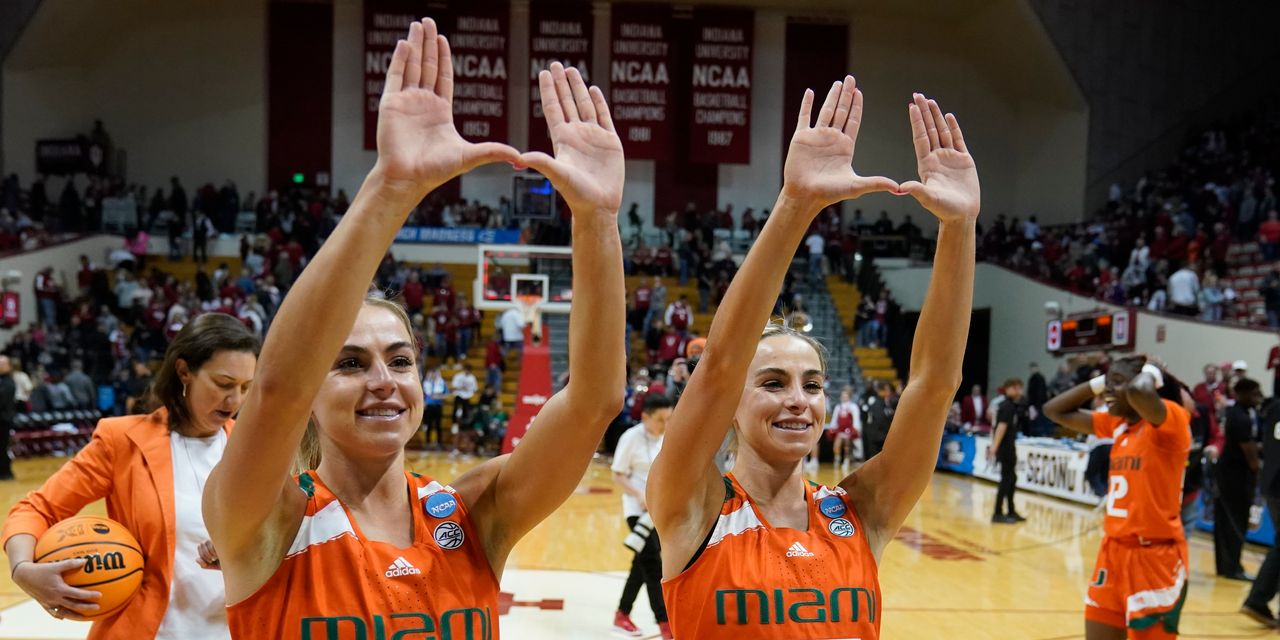Behind a paywall but here it is:
On the men’s team, Nijel Pack is an $800,000 player. Shortly after he transferred from Kansas State, he signed a two-year endorsement deal with Ruiz’s healthcare company, LifeWallet, that pays him $400,000 annually. He has been Miami’s go-to 3-point shooter this postseason. His teammate Isaiah Wong, the Hurricanes’ lead scorer in 2022-23, is also making six figures. Upon learning of Pack’s exorbitant deal, Wong’s agent laid down an ultimatum to Ruiz: pay up or watch his client transfer. Wong later said his agent had spoken out of turn and that he did not plan to leave Coral Gables.
Wong stuck around and was named Atlantic Coast Conference athlete of the year. There don’t appear to be any hard feelings: Ruiz was on hand in Albany, N.Y., for the Miami men’s first two games of the tournament.

 www.wsj.com
www.wsj.com
On the men’s team, Nijel Pack is an $800,000 player. Shortly after he transferred from Kansas State, he signed a two-year endorsement deal with Ruiz’s healthcare company, LifeWallet, that pays him $400,000 annually. He has been Miami’s go-to 3-point shooter this postseason. His teammate Isaiah Wong, the Hurricanes’ lead scorer in 2022-23, is also making six figures. Upon learning of Pack’s exorbitant deal, Wong’s agent laid down an ultimatum to Ruiz: pay up or watch his client transfer. Wong later said his agent had spoken out of turn and that he did not plan to leave Coral Gables.
Wong stuck around and was named Atlantic Coast Conference athlete of the year. There don’t appear to be any hard feelings: Ruiz was on hand in Albany, N.Y., for the Miami men’s first two games of the tournament.
Miami Boosters Splashed the Cash—and the Hurricanes Have Two Teams in the Elite Eight
The Hurricanes high profile men’s and women’s basketball transfers who signed lucrative endorsements in the offseason are now key contributors in March.

